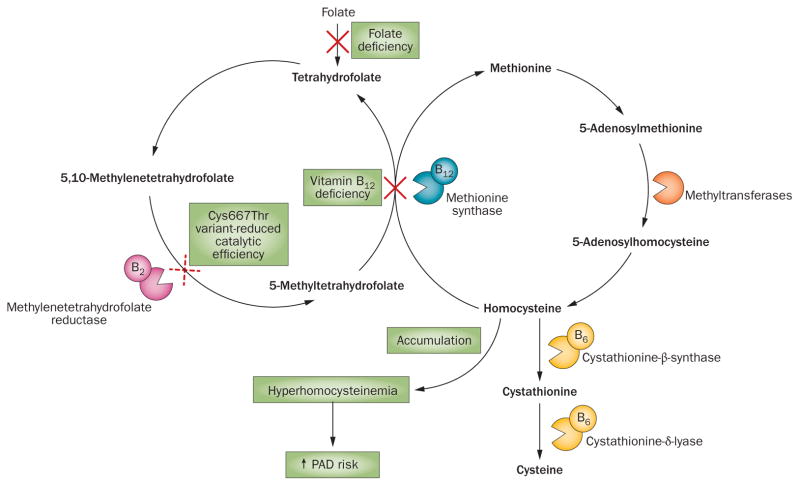Figure 1.
Potential effects of vitamin B12 and folate deficiencies, and the Cys66Thr variant of the MTHFR gene on homocysteine regulation and PAD etiology. Vitamin B12 and the folate substrate 5-methyltetrahydrofolate are cofactors for methionine synthase, which catalyzes the conversion of homocysteine to methionine. Deficiencies in vitamin B12 or folate could, therefore, disrupt homocysteine homeostasis, leading to accumulation of homocysteine, hyperhomocysteinemia, and an increased risk of PAD. Methylenetetrahydrofolate reductase is required for the conversion of folate substrates. The Cys667Thr variant of the enzyme has reduced catalytic efficiency, so the presence of the variant might also lead to disruption of homocysteine homeostasis and possibly increase the risk of PAD. Abbreviations: B6, vitamin B6; B12, vitamin B12; PAD, peripheral arterial disease.

